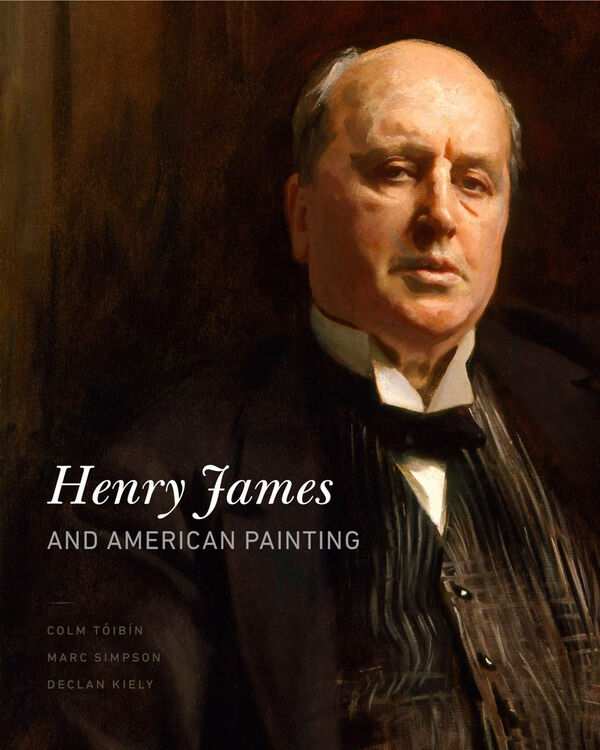Henry James and American Painting
Depicting characters like the eponymous young sculptor in Roderick Hudson and spaces like the crowded galleries in The Wings of the Dove, Henry James’s iconic novels reflect the significance of the visual culture of his society. In this book, novelist and critic Colm Tóibín joins art historian Marc Simpson and Declan Kiely of The Morgan Library & Museum to reveal how essential the language and imagery of the arts—and friendships with artists—were to James’s writing.
The authors consider the paintings, photographs, drawings, and sculpture produced by artists in James’s circle, assess how his pictorial aesthetic developed, and discuss why he destroyed so many personal documents and what became of those that survived. In examining works by figures such as John La Farge, Hendrik Andersen, and John Singer Sargent alongside selections from James’s novels, personal letters, and travel writings, Tóibín, Simpson, and Kiely explore the novelist’s artistic and social milieu. They show him to be a writer with a painterly eye for colors and textures, shapes and tastes, and for the blending of physical and psychological impressions. In many cases, the characters populating James’s fiction are ciphers for his artist friends, whose demeanors and experiences inspired James to immortalize them on the page. He also wrote critically about art, most notably about the work of his friend Sargent.
A refreshing new perspective on a master novelist who was greatly nourished by his friendships with artists, Henry James and American Painting reveals a James whose literary imagination, in Tóibín’s words, “seemed most at ease with the image” and the work of creating fully realized portraits of his characters.
The authors consider the paintings, photographs, drawings, and sculpture produced by artists in James’s circle, assess how his pictorial aesthetic developed, and discuss why he destroyed so many personal documents and what became of those that survived. In examining works by figures such as John La Farge, Hendrik Andersen, and John Singer Sargent alongside selections from James’s novels, personal letters, and travel writings, Tóibín, Simpson, and Kiely explore the novelist’s artistic and social milieu. They show him to be a writer with a painterly eye for colors and textures, shapes and tastes, and for the blending of physical and psychological impressions. In many cases, the characters populating James’s fiction are ciphers for his artist friends, whose demeanors and experiences inspired James to immortalize them on the page. He also wrote critically about art, most notably about the work of his friend Sargent.
A refreshing new perspective on a master novelist who was greatly nourished by his friendships with artists, Henry James and American Painting reveals a James whose literary imagination, in Tóibín’s words, “seemed most at ease with the image” and the work of creating fully realized portraits of his characters.
